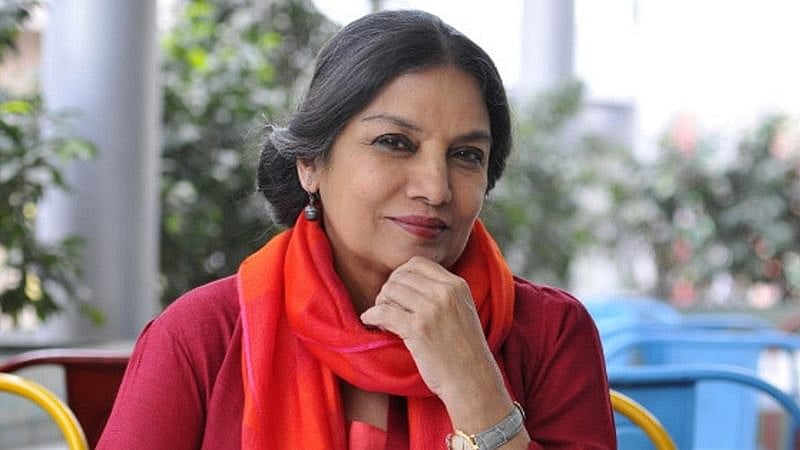The 46th CJI Ranjan Gogoi surpassed his predecessor in creating controversies by taking an oath as a Rajya Sabha member on Thursday amidst shouts of “Shame! Shame!” from the opposition who walked out of the house in protest, while the Vice President of India Venkaiah Naidu remonstrated. President Ram Nath Kovind is the first head of state with an RSS background, which is perfectly okay, except that he acted on the advice of the Narendra Modi cabinet to nominate Ranjan Gogoi to the Rajya Sabha.
Shri Gogoi, whose prefix “Justice” may now be dropped, has been accused of being rewarded with a post-retirement berth in the Rajya Sabha because of his pre-retirement actions as the 46th CJI favouring the Modi government. These allegations were levelled by no less than Justice Ajit Shah, a former chief justice of the Madras and Delhi High Courts who asserted that during his 13 months in office, Justice Gogoi (as he then was) did not conclude the Rs 6,000 crore electoral bonds issue which has contributed to the ruling party coffers.
Justice Gogoi also allegedly deliberately delayed hearing sensitive matters against the government and introduced a “sealed cover” syndrome where he asked for reports in sealed covers from the government, instead of reading them in open court, according to Justice Shah. He set a disturbing trend.
The benches headed by Justice Gogoi gave a clean chit to the Modi government in the purchase of 36 Rafale fighter jets and decreed 2.77 acres of land to the infant deity Ram Lalla which evoked praise from Narendra Modi for putting an end to the dispute. In turn, the third seniormost judge of the Supreme Court, Arun Mishra, described Narendra Modi during an international judicial conference in February as a “versatile genius” who “thinks globally and acts locally” fuelling speculation as to what post-retirement perks this judge will get from the government when he retires on September 2.
The four judges who accused the then 45th CJI on January 12, 2018 of misusing his position as master of the roster to foster pro-government verdicts by allotting sensitive cases against the government to benches of his choice, had Justice Arun Mishra in mind. When there is no tension between the judiciary and the government, judicial independence and democracy are doomed, as Justice Jasti Chelameswar cautioned.
Though separated by time, the 45th CJI Dipak Misra with his paternal uncle, the 21st CJI Ranganath Mishra and the present Justice Arun Mishra comprise a troika of controversial judges who will be remembered for allegedly cozying up to the government. Justice Dipak Misra was accused of being “controlled by an unseen hand” by his colleague, Justice Kurian Joseph.
CJI Dipak Misra’s paternal uncle, the 21st CJI Ranganath Mishra, gave a clean chit to the Congress after he held a probe into the 1984 anti-Sikh pogrom and was later elected to the Rajya Sabha on a Congress ticket, vindicating the stand of advocate Mathews Nedumpara that the sons or nephews of judges often become judges.
The newly sworn-in MP, Ranjan Gogoi, who has now become a law-maker from allegedly interpreting the law, sometimes, in favour of the executive, has declared he will use his supposed expertise as a former CJI to project the views of the judiciary before the Parliament and vice-versa which has been rubbished by his former colleagues, Justice Kurian Joseph and Justice Madan Lokur. After all, there is nothing erudite in all his judgments except for bringing the office of the CJI under the Right to Information Act, 2005.
Gogoi emerged as a kingpin of controversies because he presided over a bench to defend himself in the absence of the woman who accused him of sexual harassment, but he did not sign the order flouting judicial canons. The three judges (two of them women) who exonerated Gogoi refused to allow a lawyer to represent the woman accuser, blatantly violating her fundamental rights because even a terrorist like Ajmal Kasab was given a lawyer. And she has now been reinstated in the Supreme Court, if media reports are to be believed, thereby vindicating her allegations of unwelcome conduct by Gogoi.
Gogoi’s administrative actions as head of the collegium and master of the roster can never be challenged as there is no Constitutional provision. As head of the collegium, Justice Gogoi (as he then was) allegedly succumbed to the government by allowing an upright judge like Justice Akil Kureshi to be transferred from the Gujarat High Court to the Bombay High Court and later to the tiny Tripura High Court as chief justice when he was earlier tipped to take charge of the much larger Madhya Pradesh High court. As a judge of the Gujarat High Court, Justice Kureshi had given verdicts against Narendra Modi and Amit Shah.
Justice Gogoi (as he then was) would have allowed another stalwart Justice S Muralidhar to be transferred from the Delhi High Court to the Punjab and Haryana High Court if Justice Madan Lokur, later succeeded by Justice A K Sikri had both not opposed it. Justice Muralidhar pulled up the Delhi Police and the BJP government for the February riots which claimed 53 lives but was shunted to the Punjab and Haryana High Court on the midnight of February 26, when the riots were raging. His consent was obtained before the 47th CJI Sharad Arvind Bobde transferred this judge.
Justices Jasti Chelameswar and Kurian Joseph who took part in the press conference on January 12, 2018 refused any post-retirement plums offered by the government. Chelameswar has settled down in a small cottage built by his son at his ancestral village near Vijayawada in Andhra Pradesh. The message sent to the judiciary was if judges shared the ideology of the government, they would be rewarded like former CJI Ranjan Gogoi. If not, they would be shunted to other high courts like Justices Kureshi and Muralidhar and overlooked for elevation to the apex court.
The writer holds a Ph.D. in Media law and is a journalist-cum-lawyer of the Bombay High Court.








